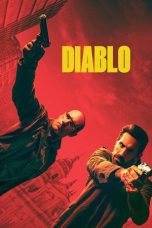Salvador (1986) Movie Review: A Raw and Unflinching Portrayal of War
Salvador (1986) is a powerful drama directed by Oliver Stone that delves into the chaos and brutality of the Salvadoran Civil War. Starring James Woods, in one of his most intense performances, the film offers a raw and unflinching look at the human cost of conflict. With Stone’s signature direction and a gripping storyline, Salvador remains a significant piece of political cinema.
Plot Overview
Salvador is set in the early 1980s during the Salvadoran Civil War, a conflict marked by extreme violence and political turmoil. The film follows Richard Boyle (played by James Woods), a struggling journalist who travels to El Salvador with his friend and fellow journalist, Dr. Rock (Jim Belushi). Boyle is driven by the desire to cover the war and escape his own personal and professional failures in the United States.
Once in El Salvador, Boyle is thrust into a world of violence and corruption. He becomes increasingly involved in the conflict, witnessing firsthand the atrocities committed by both government forces and rebel groups. The film focuses on Boyle’s attempts to navigate this dangerous landscape, his interactions with various characters, and his struggle to report the truth amid the chaos.
Characters and Performances
James Woods delivers a standout performance as Richard Boyle. Woods captures Boyle’s complex personality—his flaws, vulnerabilities, and determination. His portrayal of Boyle is both intense and compelling, making him a sympathetic yet flawed protagonist.
Jim Belushi, known primarily for his comedic roles, takes on a more serious role as Dr. Rock. Belushi’s performance provides a grounded counterpoint to Woods’ more volatile character, adding depth to the film’s portrayal of the war’s impact on individuals.
Elpidia Carrillo, who plays Maria, a local woman caught up in the conflict, offers a poignant and powerful performance. Her character’s struggle and resilience highlight the human cost of the war and provide an emotional anchor for the story.
Direction and Cinematography
Oliver Stone’s direction in Salvador is characterized by its gritty realism and unflinching portrayal of violence. Stone, who often explores political and social themes in his work, uses his distinctive style to immerse the audience in the harsh realities of war. The film’s depiction of violence and political instability is intense and often disturbing, reflecting the brutal nature of the conflict.
The cinematography, handled by Robert Richardson, enhances the film’s raw and immediate feel. Richardson’s use of handheld cameras and stark lighting contributes to the film’s sense of urgency and realism. The cinematography effectively captures the chaos and desperation of the Salvadoran Civil War, making the viewer feel as though they are right in the midst of the conflict.
Themes and Appeal
Salvador explores themes of war, corruption, and the search for truth. The film provides a critical view of the Salvadoran Civil War, highlighting the moral ambiguities and complexities of the conflict. It also delves into the personal struggles of those caught in the war, examining how the conflict affects individuals on a personal and professional level.
The film’s appeal lies in its intense and unfiltered portrayal of war. Stone’s direction, combined with strong performances and realistic cinematography, creates a gripping and thought-provoking film that challenges viewers to confront the harsh realities of conflict.
Reception and Legacy
Upon its release, Salvador received positive reviews from critics for its powerful performances and realistic depiction of war. The film was praised for its uncompromising approach to the subject matter and for its portrayal of the complexities of the Salvadoran Civil War.
Salvador has since been recognized as an important piece of political cinema, contributing to the broader discussion of U.S. foreign policy and its impact on global conflicts. The film’s legacy endures through its impact on audiences and its role in shaping the discourse around war and journalism.
Where to Watch Salvador Online
For those interested in watching Salvador, it is available on several streaming platforms and rental services:
1. Amazon Prime Video
- Availability: Rent or Buy
- Price: Rent starting at $3.99; Purchase at $12.99
- Details: Available in HD with options to rent or buy.
2. Apple TV
- Availability: Rent or Buy
- Price: Rent starting at $3.99; Purchase at $12.99
- Details: Available in HD with options to rent or buy.
3. Hulu
- Availability: Streaming with Subscription
- Details: Available as part of the Hulu library.
4. Disney+ (Star)
- Availability: Streaming with Subscription
- Details: Available as part of the Star section of Disney+.
Conclusion
Salvador (1986) is a gripping and intense film that offers a raw and unfiltered look at the Salvadoran Civil War. Directed by Oliver Stone and featuring powerful performances from James Woods and Jim Belushi, the film is a significant piece of political cinema. Its realistic portrayal of violence and corruption, combined with its exploration of personal and political themes, makes it a compelling and thought-provoking watch.
Q1: What themes does Salvador explore?
A1: Salvador explores themes of war, corruption, and the search for truth. The film provides a critical view of the Salvadoran Civil War, highlighting the moral ambiguities and complexities of the conflict while examining the personal struggles of those caught in it.
Q2: How does Oliver Stone’s direction impact the film?
A2: Oliver Stone’s direction gives Salvador its gritty realism and intense portrayal of violence. Stone’s distinctive style immerses the audience in the harsh realities of the Salvadoran Civil War, creating a sense of urgency and immediacy.
Q3: What makes James Woods’ performance in the film notable?
A3: James Woods’ performance as Richard Boyle is notable for its intensity and complexity. Woods captures Boyle’s flaws, vulnerabilities, and determination, making him a compelling and sympathetic protagonist despite his imperfections.

















